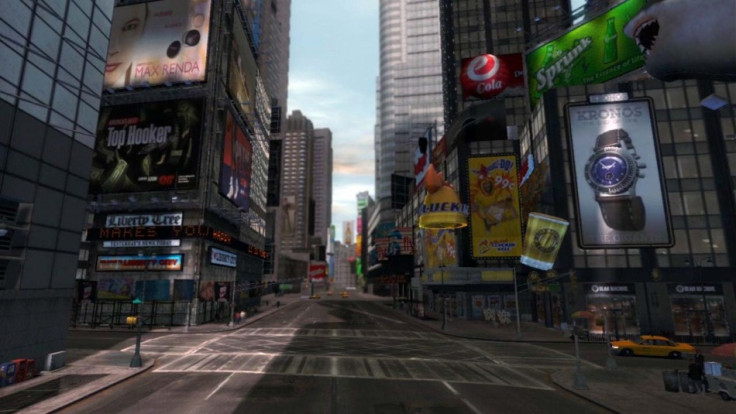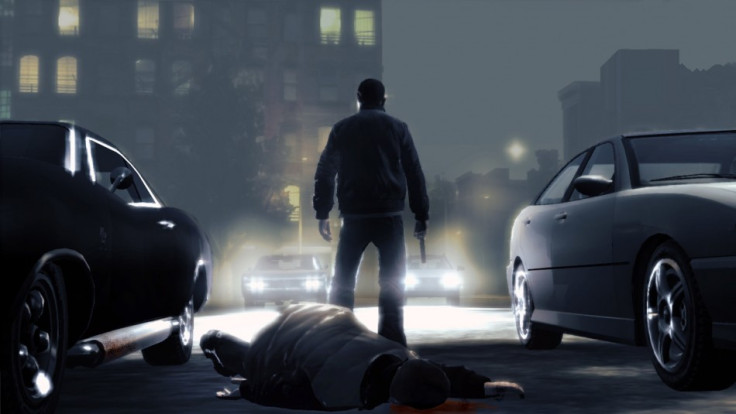Why Games Matter Blog - GTA Continues Videogames' Over-Reliance on Satire

Couldn't Rockstar just call the city Los Angeles? - How videogames rely too heavily on satire
Grand Theft Auto's brand of satire has become incredibly tiresome. Dan Houser, Rupert Humphries and James Worrall, the writers behind GTA, always reach for the low-hanging fruit, taking a simplified, teenage - but by all means, sellable - angle on American culture.
The politicians in GTA are always corrupt: the newspapers are always biased; conspicuous consumption is all the American public cares about and law enforcement, from the federal level down, is intrinsically racist. Grand Theft Auto games share the same opinions of first-year uni students, or people who have read too much Michael Moore.
They prefer to sneer rather than really engage, to believe in nothing rather than something. Whereas that was OK ten years ago, when games and the people that played them had little to no political sensibility, today it feels childish, narrow, ignorant. It feels less like GTA's writers have something meaningful to say, and more like they're either scared or incapable of properly engaging their subject matter.
Grand Theft Auto IV
Look at GTA IV: the game hides behind satire. Though it looks like it's set in New York City, it isn't set in New York City - it's set in Liberty City, and that's Rockstar's safety net for when anyone calls GTA out on politics. It's also a comedy; GTA IV's radio stations, websites and billboards are filled with dick jokes and Onion-style faux-news. "You shouldn't take any of this too seriously," it all seems to imply. "We're just clowning around."

And that's just plain toothless. If you're setting your game in New York City, call the city New York City and write about things that are actually happening there - do more research than just taking photographs.
And stand by what you say. Don't just brush it off like "ha ha we were only kidding": Get behind it, get angry.
Rockstar's narratives have consistently banged the same drum for years: "hey maybe the American Dream isn't all that?" It feels like the writers haven't ventured properly into the worlds they're exploring, like they haven't spoken to real politicians; real police officers; real criminals. Grand Theft Auto is filled with a teen kind of sneering, and frankly, Houser and the others could do with growing up.
Grand Theft Auto drags the word "satire" through the gutter. There isn't a single astute observation in the whole series, with the writer's "jokes" rarely rising above titters like renaming the NASDAQ the BAWSAQ. Despite the Olympian effort it must take to create and launch a Grand Theft Auto game, writing like this is lazy; that game reviewers continue to be interested in GTA's "unique brand of satire" is indicative not of Rockstar's ingenuousness, but of critics' low standards.
Concessions
Concessions, though, are only natural. A faithful recreation of New York City wouldn't be fun to play in - it'd mean traffic jams and getting arrested for dangerous driving. For the sake of the riotous, free-wheeling gameplay GTA is known (and loved) for, a certain level of satire, of fictiousness, is necessary. Removing GTA from reality gives Rockstar license to design whatever.
And of course, parables are more entertaining. That's why, instead of a book about Ebola or Marburg, Max Brooks wrote World War Z. The problem in games, though, is that everything's a parable. Dishonored is set in a fictional reimagining of London; Syndicate takes a pop at corporations, but does it in the future, with guns and mind control powers. No-one's biting down on the real, actual world. If a AAA game sets out to tackle something serious, it does it with hyperbole, fantasy and jokes.

There are no non-fiction games. Grand Theft Auto is the most severe example - an enormous, well-funded series, financially impervious to criticism, which nevertheless backs down from reality. Is it because writers are too scared? Is it because gaming audiences prefer to live in fantasies? Is it something inherent in the medium - is it that, since development technology allows you to create anything you can imagine the temptation to ignore the real-world is too strong? It's hard to decide.
But it's becoming increasingly difficult to justify games to a wider audience. For all the spectacle and splendour of Grand Theft Auto, it has nothing to teach us, nothing at least beyond easy observations made by better writers a long time ago. It postures as commentary - it sells itself as a diatribe - but in actuality, it has nothing valuable to say, since for some reason, the writers are unwilling to dirty their hands.
When future generations want insight into America, they'll get it from television, films and books. There'll be no reason for them to play Grand Theft Auto.
© Copyright IBTimes 2024. All rights reserved.







